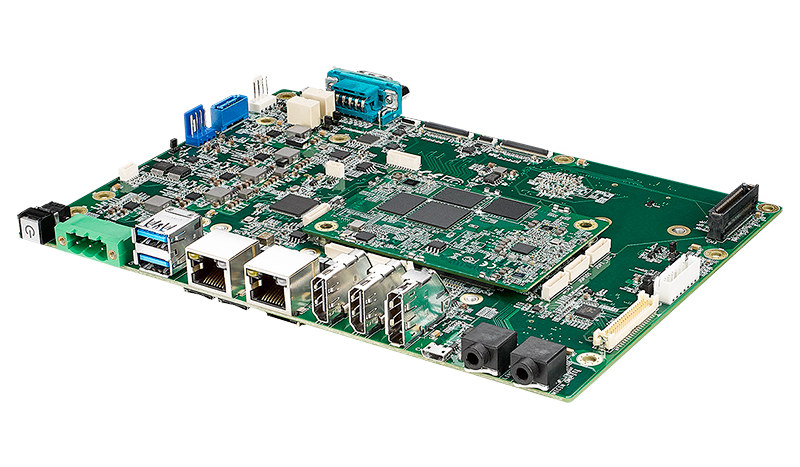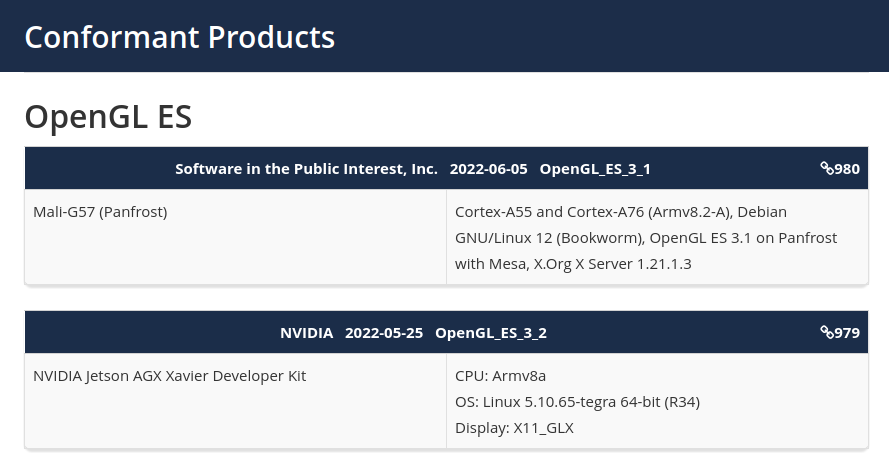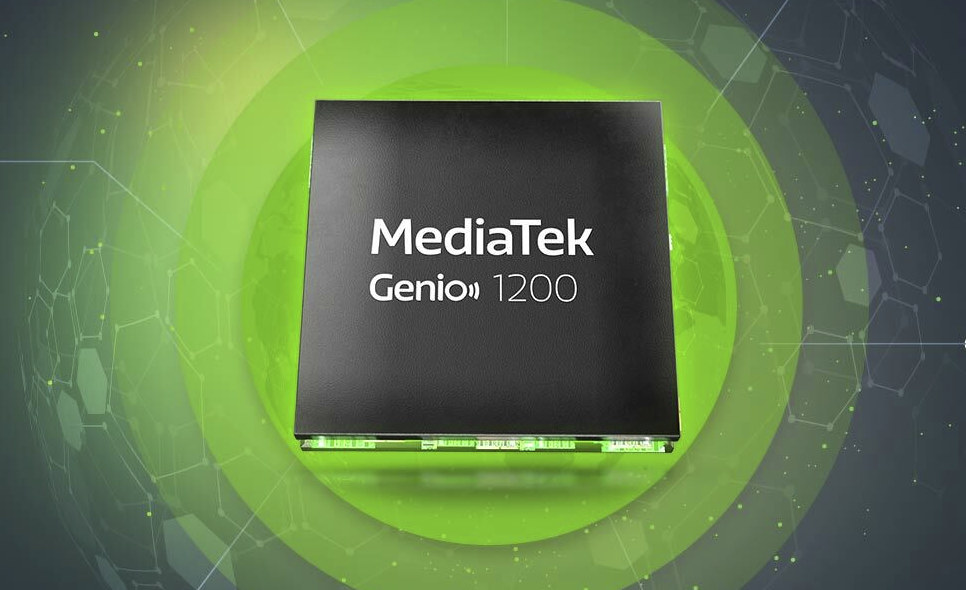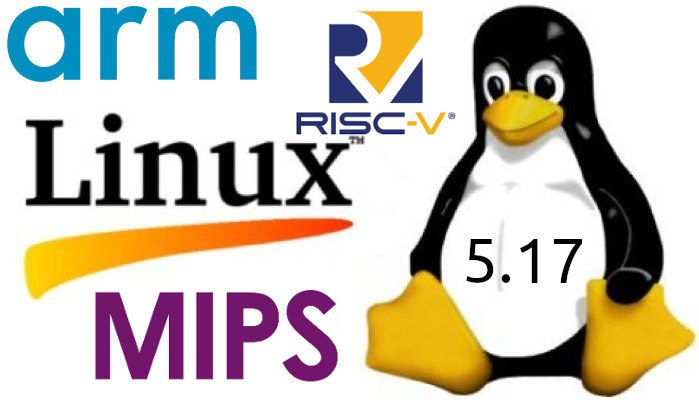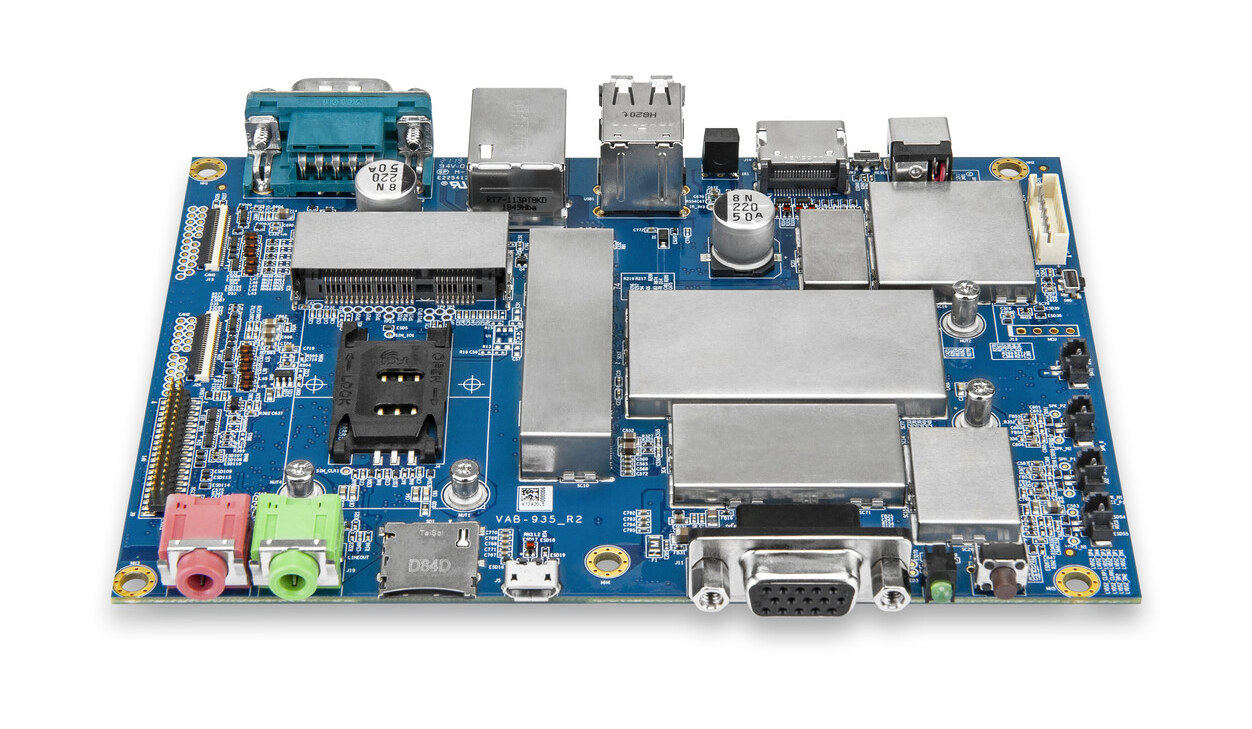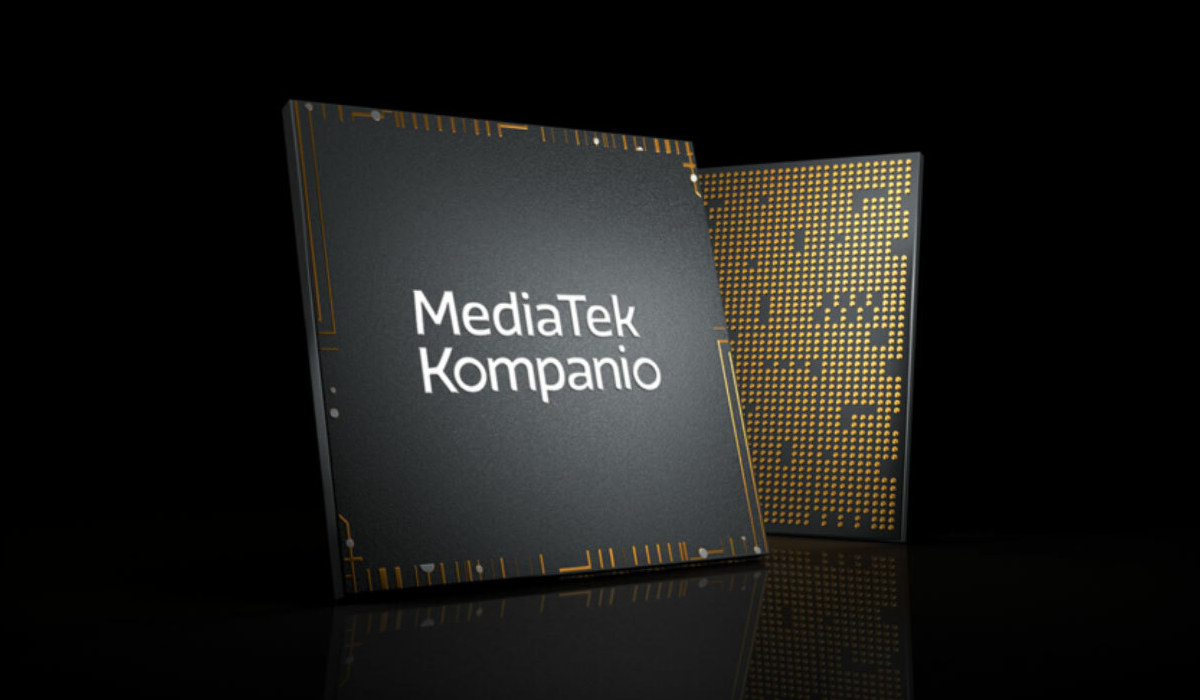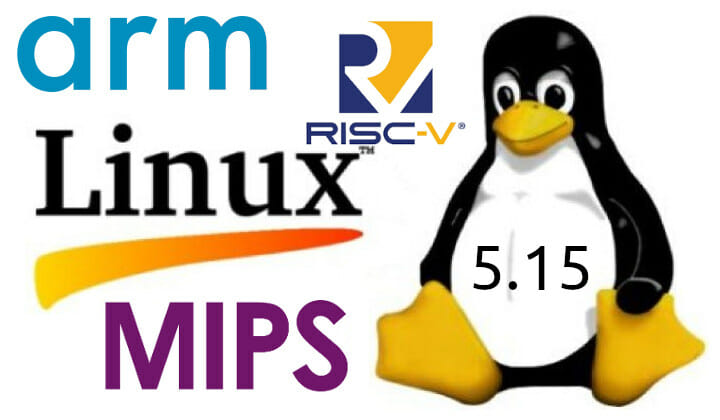Vecow has announced a series of new system-on-modules and development kits based on Mediatek Genio 350, Genio 500, or Genio 1200 processors for AIoT applications ranging from smart security, smart retail, and traffic vision to digital signage. This follows last week’s news about ADLINK LEC-MTK-I12000 SMARC module and devkit powered by MediaTek Genio 1200 Cortex-A78/A55 AIoT processor, but Vecow also offers solutions based on the entry-level Genio 350 quad-core Cortex-A53 processor, and the mid-range Genio 500 octa-core Cortex-A73/A53 processor. ESOM-MT-350 Genio 350 system-on-module and devkit Specifications: SoC – MediaTek Genio 350 quad-core Cortex-A53 processor @ 2.0GHz with Mali-G52 GPU with support for OpenGL ES 3.2, OpenCL ES 2.0, and Vulkan 1.1, 1080p60 H.265/H.264 video decoder System Memory – 2GB LPDDR4 SDRAM Storage – 16GB eMMC flash Wireless – MT7668 WiFi 5 and Bluetooth 4.2 module with IPEX connector Audio – MediaTek MT6390/6357 audio codec Debugging – On-module debug console port […]
Panfrost now offers a fully-conformant OpenGL ES 3.1 implementation for Mali-G57 (Valhall) GPU
The Mali-G57 GPU part of the Valhall family, and found in several Arm processors such as MediaTek MT8192 and MT8195 SoC powering some Chromebooks, is now supported by the Panfrost open-source driver with a fully-conformant OpenGL ES 3.1 implementation. Last year, Collabora updated Panfrost with support for OpenGL ES 3.1 on Midgard (Mali T760 and newer) and Bifrost (Mali G31, G52, G76) GPUs, and also announced having started working on Valhall GPUs. One part of the work was done in the summer of 2021 with some reverse-engineering work on Mali-G78 GPU’s instruction set, and this has culminated with a fully-conformant OpenGL3.1 for Mali-G57 GPU. Interestingly, it’s not been released by Collabora directly, but through an organization called “Software in the Public Intenerest, Inc.” (or SPI for shorts) which happens to be a non-profit organization incorporated on June 16, 1997, and described as: a non-profit corporation registered in the state of […]
MediaTek unveils Genio 1200 premium AIoT processor with 4.8 TOPS NPU
MediaTek has introduced the Genio platform for AIoT devices, and unveiled the first chip of the Genio family with the Genio 1200 Octa-core Cortex-A78/A55 processor with a 4.8 TOPS NPU, 4K video support, and designed for premium AIoT products. The chip is manufactured with a 6nm processor, is said to consume less than 8W, supports dual 4Kp60 video output and up to 48MP @ 30 fps video capture, and WiFi 6, Bluetooth 5.2 and 5G connectivity can be added through add-in chips. Targets applications include Smart Home appliances, HMI, industrial IoT, robotics, and more. MediaTek Genio 1200 key features and specifications: CPU – Octa-core processor with four Cortex-A78 cores @ up to 2.2 GHz, four Cortex-A55 cores GPU – Arm Mali-G57 MC5 GPU VPU Encoding up to 4Kp60 with H.265/HEVC Decoding up to 4Kp90, AV1, VP9, HEVC, H.264 codecs supported AI accelerator – Dual-core Mediatek AI processor (APU) with INT8, INT16, […]
Linux 5.17 release – Main changes, Arm, RISC-V, and MIPS architectures
Linus Torvalds has just released Linux 5.17: So we had an extra week of at the end of this release cycle, and I’m happy to report that it was very calm indeed. We could probably have skipped it with not a lot of downside, but we did get a few last-minute reverts and fixes in and avoid some brown-paper bugs that would otherwise have been stable fodder, so it’s all good. And that calm last week can very much be seen from the appended shortlog – there really aren’t a lot of commits in here, and it’s all pretty small. Most of it is in drivers (net, usb, drm), with some core networking, and some tooling updates too. It really is small enough that you can just scroll through the details below, and the one-liner summaries will give a good flavor of what happened last week. Of course, this means […]
VIA SOM-9X35 Starter Kit features MediaTek i350 Arm processor for edge AI devices
VIA has just introduced the SOM-9X35 Starter Kit based on MediaTek i350 quad-core Cortex-A53 processor with AI accelerator and HiFi4 DSP designed for Edge AI devices in the retail, commercial, and industrial sectors. The kit is comprised of the SOM-9X35 module with MediaTek i350 SoC, up to 4GB RAM, 16GB eMMC flash, and WiFI 5 + Bluetooth 5.0 wireless module, as well as the VIA VAB-935 3.5-inch carrier board, a 7-inch 1024×600 touch panel display, a 13MP camera module, two speakers and microphone, and accompanying accessories. VIA SOM-9X35 Starter Kit specifications: SOM-9X35 System-on-Module SoC – MediaTek i350 (MT8365) quad-core Arm Cortex-A53 processor @ up to 2.0 GHz, Arm Mali-G52 MC1 up to 800Mhz with support for OpenGL ES, OpenCL, and Vulkan APIs, MediaTek APU 1.0 AI Processor up to 500MHz (285 GMACs), HiFi4 DSP System Memory – 2GB LPDDR4 SDRAM (1GB/4GB optional) Storage – 16GB eMMC flash Connectivity – MediaTek […]
Speeding up open-source GPU driver development with unit tests, drm-shim, and code reuse
Getting an Arm platform that works with mainline Linux may take several years as the work is often done by third parties, and the silicon vendor has its own Linux tree. That means in many cases, the software is ready when the platform is obsolete or soon will be. It would be nice to start software development before the hardware is ready. It may seem like a crazy idea, but that’s what the team at Collabora has done to add support for Arm “Valhall” GPUs (Mali-G57, Mali-G78) to the Panfrost open-source GPU driver. The result is that it only took the team a few days to successfully pass tests using data structures prepared by their Mesa driver and shaders compiled by their Valhall compiler after receiving the actual hardware thanks to the work done in the last six months. So how did they achieve this feat exactly? We have to […]
MediaTek Kompanio 1380 Cortex-A78/55 processor is designed for premium Chromebooks
MediaTek Kompanio 1380 is a 6nm octa-core Cortex-A78/A55 processor clocked at up to 3.0 GHz designed for premium Chromebooks such as the new Acer Chromebook Spin 513 (CP513-2H), which will compete against the company’s Snapdragon 7c based Chromebook Spin 513 (CP513-1H). The processor supports LPDDR4x memory, UFS and eMMC storage, up to three displays, for example, the main display plus two external HDMI displays, WiFI 6/6E, and offers high-performance interfaces such as PCIe Gen 3 and USB 3.2 Gen 1. MediaTek Kompanio 1380 (MT8195T) processor specifications: Octa-core CPU 4x Arm Cortex-A78 cores @ up to 3.0 GHz 4x Arm Cortex-A55 cores @ up to 2.0 GHz GPU – Arm Mali-G57 MC5 AI accelerator – MediaTek APU 3.0 up to 4 TOPS VPU Video Playback – 4K HDR H.264, H.265 / HEVC, VP9, AV1 Video Encoding – 4K HDR H.264, H.265 / HEVC Memory – LPDDR4x @ 2133 MHz Storage – […]
Linux 5.15 LTS release – Main Changes, Arm, RISC-V and MIPS architectures
Linus Torvalds released Linux 5.15, an LTS version, this past Sunday: It’s been calm, and I have no excuse to add an extra rc, so here we are, with v5.15 pushed out, and the merge window starting tomorrow. Which is going to be a bit inconvenient for me, since I also have some conference travel coming up. But it’s only a couple of days and I’ll have my laptop with me. Sometimes the release timing works out, and sometimes it doesn’t.. Anyway, the last week of 5.15 was mainly networking and gpu fixes, with some random sprinkling of other things (a few btrfs reverts, some kvm updates, minor other fixes here and there – a few architecture fixes, couple of tracing, small driver fixes etc). Full shortlog appended. This release may have started out with some -Werror pain, but it calmed down fairly quickly and on the whole 5.15 was […]


